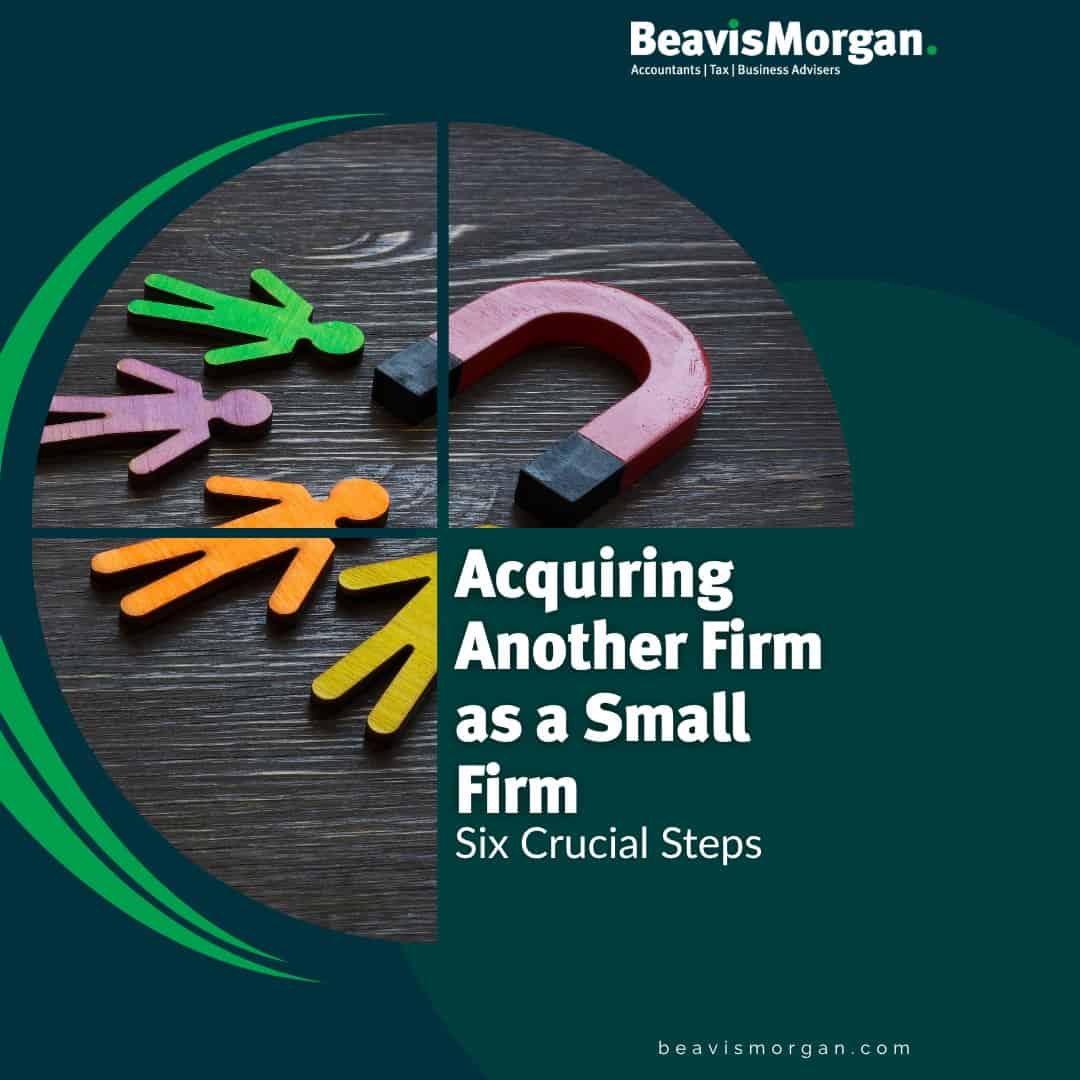M&A isn’t just for big firms – what smaller businesses need to get right
Mergers and acquisitions (M&A) are often seen as the domain of large corporations, but for smaller firms, a well-planned acquisition can accelerate growth, expand your client base, and strengthen your market position. Done without care, though, it can become an expensive distraction.
Here are six essential steps – and some dos and don’ts – to help small firms approach acquisitions with confidence.
-
Define your strategic goal
Before looking at any targets, be clear on why you want to buy.
- Are you chasing growth, diversification, or cost efficiencies?
- What do you want the business to look like in three to five years?
Opportunistic deals are tempting, but if they don’t align with your wider goals, they often create more problems than value.
Do: Align your leadership team on the purpose of the acquisition.
Don’t: Buy just because the price looks right.
-
Choose your target carefully
Finding the right fit matters more than finding a fast deal.
- Strategic fit: Does the target complement your services or geography?
- Cultural fit: Do values, pace, and people align?
- Financial stability: Is revenue consistent and diversified?
- Key personnel: Who must be retained post-acquisition?
A mismatch – especially on culture or client expectations – can erode value quickly.
Do: Benchmark several potential targets before deciding.
Don’t: Assume early chemistry means long-term compatibility.
-
Carry out thorough due diligence
Due diligence confirms the reality behind the numbers. Review:
- Financials: Cashflow, margins, and debt.
- Contracts: Key clients, suppliers, leases, litigation risks.
- Compliance: Licences, regulatory history, IP ownership.
- HR: Employment terms, liabilities, retention risks.
- Operations: Systems, infrastructure, efficiency gaps.
Take time to dig into the details – especially customer concentration, debt exposure, and hidden liabilities.
Do: Use independent specialists for financial, legal, and tax checks.
Don’t: Skip corners to speed up completion.
-
Structure and finance the deal carefully
Deal structure affects everything from control to post-deal flexibility.
- Combine cash and deferred payments to manage risk.
- Consider vendor finance or earn-outs tied to performance.
- Agree on warranties, indemnities, and escrow to protect your position.
- Model cashflow post-deal – acquisitions consume liquidity faster than expected.
Do: Stress-test your forecasts and debt covenants.
Don’t: Assume growth will cover short-term funding gaps.
-
Plan integration early
Closing the deal is just the start. Integration determines long-term success.
- Appoint an integration lead early.
- Define systems and people plans before completion.
- Communicate clearly with staff, clients, and suppliers.
- Manage culture proactively – respect differences, find common ground.
Do: Prioritise culture and communication as much as numbers.
Don’t: Assume the two teams will “just blend”.
-
Seek professional advice
Even small acquisitions are complex. Tax, valuation, structuring, and compliance each carry their own risks.
Specialist advice from accountants, lawyers, and corporate finance advisers can help you:
- Assess affordability and funding options.
- Identify tax-efficient structures.
- Negotiate warranties and protections.
- Spot integration risks early.
Do: Bring advisers in early – not after the heads of terms are signed.
Don’t: Rely solely on internal resources or informal advice.
Final thoughts
For small firms, acquisitions can be transformational. But success depends on clarity, diligence, and planning. Define your purpose, pick the right partner, do your homework, structure it wisely, plan for integration – and always get expert input.
At Beavis Morgan, we advise business owners through every stage of acquisition and growth – from strategy and valuation to funding, tax and integration.
If you’re considering acquiring another firm, talk to us first. We’ll help you structure a deal that supports your long-term goals. Contact your usual Beavis Morgan partner, or Paul Ashton.





